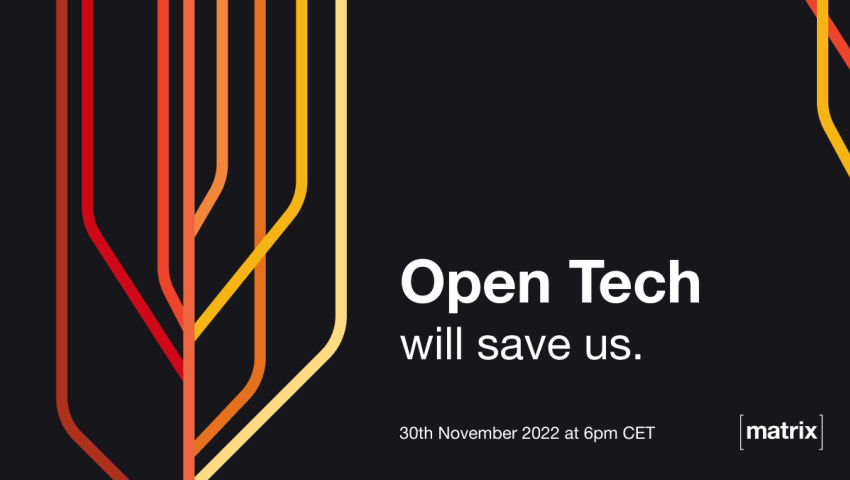Arthur C. Clarke and the Paradox of Distance
What strikes me in the video linked below is that Clarke not only falls for the fallacy of the immolation of distance, but that his example, communications satellites, is actually an exemplar of this.
If you've ever talked over a satellite link, you're aware of the time lag, about 1 full second for a round-trip, which makes the interaction quite awkward. (Today's Zoom calls and even mobile phones with slow codecs show the effect with even smaller lags.) Our human wetware is quite attuned to local and realtime conversations, and even a delay of 100 ms or so starts straining the limits of our natural conversational flow.
Communications satellites are now almost completely avoided for any realitime voice, or more importantly, data communications, because of that very timelag. Instead they're used for non-realtime data, and even then, only where access to the preferred alternative is unavailable. What binds the world together today isn't comsats, but fibre, sinews of optical cord laid across landscapes and seascapes. Even where delays are undetectable by humans, data transmissions, and financial trading most especially, lives and dies on 10μs advantages in latency --- less than 3 km at lightspeed, and coicidentally quite close to the maximum size of a preindustrial city.
That effect is compounded at slower speeds and for other functions, such that cities today aren't less viable but more viable than they were in 1964. The largest cities don't number in the millions but the tens of millions. China has over 100 cities with more than one million in population_ (in the US the number is ten: New York, Los Angeles, Chicago, Houston, Phoenix, Philadelphia, San Diego, San Antonio, Dallas, San Jose.) Wuhan is the city of eleven million you never heard of until 2020, very nearly larger than NYC and LA, combined.
What Clarke missed, and quite frankly what I did too until a couple of years ago, is that all the advantages technology affords at distance, it also affords close in. Plus all the other capabilities close proximity affords that cannot be provided at distance. It's subtle, but means that rather than decentralising, highly virtual activities tend to concentrate even more closely, as their limiting factors become the elements which are not virtualisable.
Technology is a power multiplier. Efficiencies breed monopolies.
You see this in film: cans, or digitally-distributed end-product can be sent around the world cheaply and easily. But it's the physical factors of productions which are fixed in physical space: sets, equipment, carpenters, speech coaches, costume designers, electricians, sound techs, equipment repair, and of course, the various back-office support teams who find in-person meetings to be vastly higher-bandwidth and lower-latency than the broadest and fastest of bands.
Or in banking, publishing, government, the technology sector itself, education (despite a century's efforts to virtualise, and another 500 years before through the virtualisation of the moveable-type press), music, fashion, and more.
Even in the physical world, cheap transport and multi-step, multi-location production does not result in parallel facilities available worldwide, but instead localised centres of specialisation, the failure of any one of which imperils a global supply chain. (See today's chip shortage, vaccine disruptions, and other similar examples.)
What provides localised redundancies are frictions, whether material or imposed. Film, mentioned earlier, is centered on its metonym, "Hollywood", but local film traditions, supported by language, culture, or government policy, emerge elsewhere, notably in the UK, France, Italy, Iran, India, China, and Japan. For many of these, production is largely for local consumption (though for India and China, a billion-strong local market rivals the rest of the world at least in headcount). Banking is regionalised in part by regulatory obligations. But markets such as cement manufacture, quarrying, dairy, and bread baking, and white-linen sit-down dining are constrained to locality by sheer mass of goods, cost of transport, or fragility or time-sensitivity of the product. (Many a food-delivery startup has discovered that there are only a few styles of dishes that survive even neighbourhood-based delivery, let alone regional, national, or international.)
I've been tracing the origins of the "technology and telecommunications will erase distance" fallacy. Much of the blame seems to fall on A.C. Clarke's shoulders.
https://invidious.snopyta.org/watch?v=wC3E2qTCIY8
#ArthurCClarke #telecomms #telecommunications #distance #ParadoxOfDistance #monopoly #centralisation #decentralisation









